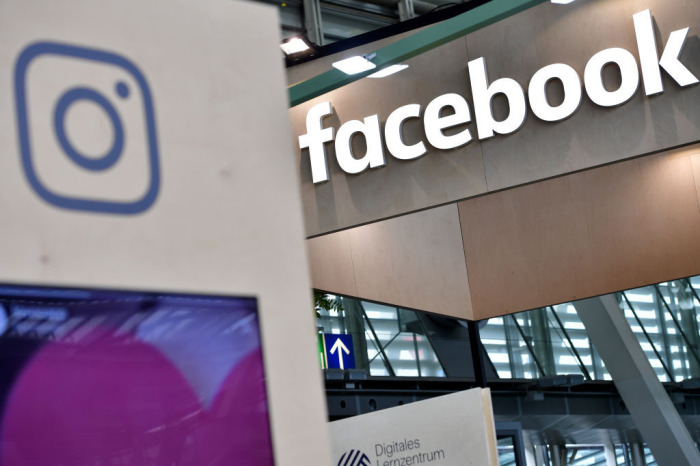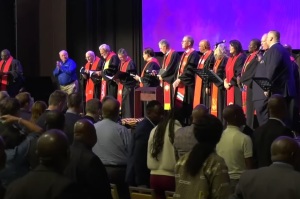'The right to listen': Biden admin. shouldn't force social media to censor dissenting views, attorneys tell court

A former Missouri government official has argued that people have “the right to listen” to controversial social media accounts, even if the Biden administration believes that they should be censored.
Oral arguments were heard Thursday afternoon before Fifth Circuit Judges Edith Brown Clement, Jennifer Walker Elrod and Don R. Willett in the case of State of Missouri et al v. Joe Biden et al.
At issue was an injunction from a lower court that prohibited the Biden administration to communicate with social media companies on various issues, especially censorship of posts and accounts it disagrees with as well as news outlets that report negatively on the Biden family.
Former Missouri Solicitor General Dean John Sauer argued in favor of the injunction, comparing the federal government's collaboration with social media platforms to censor posts they consider false or disagree with to be comparable to “book burning.”
Sauer went on to argue that taking down social media posts of social commentators is harmful to those who follow their accounts, “because the right to listen is just as fundamental as the right to speak.”
“When you take down Tucker Carlson,” said Sauer, “that injures Tucker Carlson and the people who follow him, the 3 million people who follow him, equally. They both have a First Amendment injury.”
“These plaintiffs assert the right to listen, they assert the right to listen to virtually every single one of these speakers that was silenced by the federal censorship in this case.”
Sauer considered the violation of the “right to listen” to be “so comprehensive that it just really neutralizes” any of the arguments that the defendants have been making against the injunction.
Current Missouri Solicitor General Joshua Divine also argued in favor of the injunction, referencing the “right to listen, to receive information” in his remarks before the panel.
“We're in a totally different area than we would have been 20 years ago, 30 years ago before social media, because social media has just broadened dramatically the kinds of audiences,” said Divine.
Daniel Bentele Hahs Tenny, an attorney with the United States Department of Justice, argued that he believed the plaintiffs had failed to show “irreparable injury” from social media platforms censoring certain posts.
Tenny claimed that, under the plaintiffs’ reasoning, if a natural disaster occurred and people on social media were circulating false information about the event “that were damaging to the public interest,” the administration “would be powerless, under the injunction, to discourage social media companies from further disseminating those incorrect statements.”
“If, in the course of a law enforcement investigation, a government official were to conclude that it was likely, although not certain that posts on social media were part of a criminal conspiracy, for example regarding human trafficking, that the government official would be powerless to bring those posts to the social media company’s attention,” Tenny continued.
Tenny claimed that the injunction was “too vague” and claimed that the district court failed to give “specific things” by the government that caused harm to the plaintiffs.
Last year, the Republican attorneys general of Missouri and Louisiana sued the Biden administration, accusing it of unlawfully censoring people through collaboration with major social media platforms.
The litigation stemmed from allegations that the administration worked with Facebook and X, formerly known as Twitter, to censor posts promoting conservative viewpoints or news that portrayed the Biden family in a negative light.
Censored posts included dissenting views on how to treat COVID-19, a theory that COVID-19 was leaked from a lab in Communist China, and negative news about Joe Biden’s son, Hunter.
"As a direct result of these actions, there has been an unprecedented rise of censorship and suppression of free speech — including core political speech — on social-media platforms," the lawsuit argued.
"Not just fringe views, but perfectly legitimate, responsible viewpoints and speakers have been unlawfully and unconstitutionally silenced in the modern public square. These actions gravely threaten the fundamental right of free speech and free discourse for virtually all citizens in Missouri, Louisiana, and America, both on social media and elsewhere."
Last month, U.S. District Judge Terry Doughty, a Trump appointee, blocked federal officials from "meeting with social-media companies for the purpose of urging, encouraging, pressuring, or inducing in any manner the removal, deletion, suppression, or reduction of content containing protected free speech posted on social-media platforms."
The restrictions exempted things like "informing social-media companies of postings involving criminal activity or criminal conspiracies," "contacting and/or notifying social-media companies of national security threats, extortion, or other threats posted on its platform" and "informing social-media companies of threats that threaten the public safety or security of the United States."
However, soon after, the Fifth Circuit issued a brief order in response staying the Doughty preliminary injunction against the Biden administration "until further orders of the court."





























